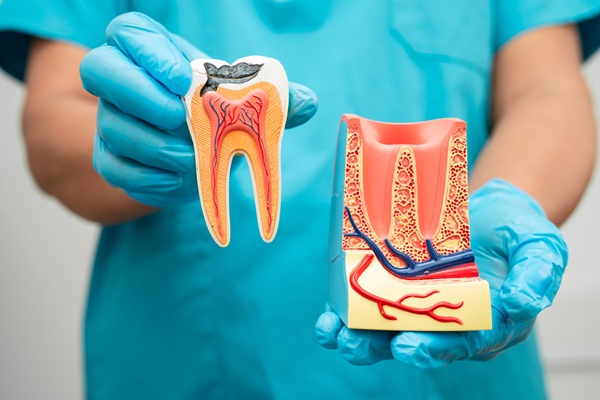When Do You Need to Consult an Endodontic Specialist?

Endodontics is a specialized branch of dentistry in which an endodontic specialist focuses on diagnosing and treating issues related to the dental pulp and the tissues surrounding the roots of the teeth. Most people are familiar with endodontists as the professionals who perform root canals, but their expertise goes beyond that.
7 signs that you should visit an endodontist
Now, let us look at when a patient might need to consult an endodontic specialist and the various conditions and symptoms that may lead someone to their care.
1. Persistent tooth pain
A primary reason to consult an endodontic specialist is persistent tooth pain. If a patient is experiencing severe and recurrent tooth pain that does not subside with over-the-counter pain relievers, it may indicate an underlying issue within the tooth, such as an infection or damage to the dental pulp. Endodontists are experts in diagnosing and treating such conditions to alleviate pain.
2. Sensitivity to hot or cold
Extreme sensitivity to hot or cold temperatures, especially when consuming food or beverages, can be a sign of dental pulp problems. This sensitivity may linger for an extended period, even after removing the hot or cold stimulus. It is essential to address this sensitivity, as it may indicate an issue that requires endodontic treatment.
3. Swelling or abscess
Swelling in the gum area near a tooth or the presence of an abscess (a pimple-like bump on the gum) can indicate a dental infection. Infections within the tooth can cause a buildup of pus, resulting in pain and swelling. Endodontic treatment, often in the form of a root canal, is necessary to remove the infected tissue and prevent the infection from spreading.
4. Trauma or injury
Dental trauma, such as a severe blow to the mouth or a sports-related injury, can damage a tooth's dental pulp or roots. Even if there are no immediate symptoms, patients should consult an endodontic specialist after such an injury to assess any potential damage and prevent future complications.
5. Cracked or fractured teeth
Teeth that are cracked or fractured can expose the dental pulp to bacteria, leading to infection and pain. Endodontists can evaluate the extent of the damage and then determine the appropriate treatment, which may include a root canal to save the tooth.
6. Darkening or discoloration of a tooth
A tooth that has darkened or changed color may indicate a problem with the dental pulp. Such discoloration can be a sign of trauma, infection, or a dying pulp. Endodontists can diagnose and treat the issue to restore the tooth's health and appearance.
7. Failed previous dental work
In some cases, previous dental work, such as a filling or crown, may not effectively resolve the underlying issue. If the patient continues to experience pain or discomfort after dental treatment, they are advised to consult an endodontic specialist, who can assess the situation and provide further treatment if necessary.
Schedule an endodontic consultation today
If you experience persistent tooth pain, sensitivity, swelling, trauma, or other concerning symptoms, do not hesitate to consult with our endodontist. Early intervention can help preserve your natural teeth and alleviate discomfort, ensuring your continued oral health.
Request an appointment here: https://santarosaendodontics.com or call Santa Rosa Endodontics at (707) 409-1177 for an appointment in our Ukiah office.
Check out what others are saying about our dental services on Yelp: Endodontic Specialist in Ukiah, CA.
Recent Posts
A person might need to see an endodontist for a wide variety of problems, mainly relating to how they can save patients’ teeth. All endodontists are dentists because they have completed dental school, but they do two more years of specialized study in the techniques used to preserve a person’s dentition. So, if you are…
When a root canal fails, a root canal retreatment must happen. Getting a root canal treatment is better than a dental extraction. If an endodontist sees that your tooth still has good bone support and healthy gums under or around it, a root canal can save the tooth. A root canal is a less expensive…
Tooth pain and dental trauma can be distressing and require immediate attention to prevent further damage and alleviate discomfort. An emergency endodontist specializes in diagnosing and treating severe tooth pain and trauma, offering expert care to save a tooth, relieve pain, and protect long-term oral health. When sudden tooth pain or injury strikes, seeking help…
Tooth pain can stem from various dental issues; one lesser-known cause is a dental root fracture. Root fractures are cracks in the root of a tooth, often resulting from traumatic injury, tooth decay, or other dental conditions. When treated promptly, such as with root canal therapy, patients can avoid significant discomfort and complications. Recognizing the…


